- Home
- Kathryn Lasky
The Extra
The Extra Read online
“Disappeared? What are you talking about? People don’t disappear. She just went someplace.”
“So where do you think Mila went? Why wasn’t she in school? Today of all days, recitation day. She had been practicing forever. She was sure to get the prize.”
“Maybe she’s sick.”
“Mila sick? Never — she’s healthy as a horse. And even if she is, she would have dragged herself to school. No — something’s fishy.”
Lilo shut her eyes. If only Hannah didn’t live in the same neighborhood. Then they wouldn’t have to walk home together. She was always thinking the worst. It was too depressing. There was something slightly perverse about her. She seemed to almost enjoy bad news. There was always this “I told you so” attitude.
“I think the Nazis got her,” Hannah said. “Your fingers still purple?”
Two weeks before, Lilo’s family and all the other Gypsies over the age of fourteen in Vienna had been required to report to the police headquarters to be fingerprinted. It was all part of the Nazi laws, the Nuremberg Laws. Now the Nazis knew who they were and where they lived. That was frightening.
“Uh . . .” Lilo hesitated. “I really haven’t tried to wash it off.”
“Lilo! Are you telling me you haven’t bathed in two weeks, washed your hands in two weeks?”
“No, of course not!”
“Well, I can see they are still purple.”
“So why did you ask?”
Hannah shrugged. “Well, I have tried to get it off. My mum, my dad, my brother, and I have tried everything — spirits of camphor, nail-polish remover mixed with scrubbing salts. Nothing works.”
Lilo took a sharp left. “Hey, where you going?” Hannah said. “Home is straight ahead.”
“My father’s shop. I forgot he wanted me to stop by.”
“All right, hope I see you tomorrow. I mean I hope we both see each other tomorrow. Could be you. Could be me.” She shrugged again.
“Maybe Mila will be back,” Lilo replied.
“You know she’s not the first to disappear. An upper-grade girl, Zorinda, is gone, too.”
But Lilo didn’t want to hear any more of it. The church on the corner ahead marked the intersection of the street they were on and the one for her father’s shop. Kirchestrasse was a cobbled lane more than a street. She rushed down it and turned in under the sign of the clock. On the window was a seal, the seal of the Imperial Clockmakers Guild of Vienna, with three stars designating him as a master clockmaker and licensed dealer in antique timepieces.
“Papa!” she called out as she came into the small shop that was not much bigger than a closet. A chorus of ticking clocks and all kinds of watches greeted her. The sounds of the timepieces stippled the air.
“Papa!” It was more of a yelp than a cry. The shop was open, but he wasn’t there.
“Papa!” she now bellowed. She heard footsteps.
“What in the world!” Her father came through a back door.
“Where were you? I was so worried.”
“I’m fine — I’m here. What were you worried about? Can’t a fella take a leak? I just went to the toilet.”
She smiled. Everything was all right. Her father stood before her, the little green eyeshade he always wore pushed up, the jeweler’s loupe hanging on the black ribbon around his neck, his tie tucked into his vest so it would not interfere as he took apart and put back together all manner of watches and clocks. His fingers were still purple, too, she noticed.
“Papa, do you have any of that lubricating oil you use for the escapement wheels?”
“Sure, but what do you want with that?”
“I had an idea that maybe if we mixed it with alcohol, we could remove the stains on our fingers.”
“Doubtful, but if you want to try, go ahead.”
She stood over a small basin and poured the oil first and then the alcohol. “Can I use this sponge?”
“Sure. I’ll be finished here in a couple of minutes. Then I just have to pack up a few things to take home to work on. The baron is coming by tomorrow for his watch.”
“The tsar’s watch.”
“That’s the one.”
“Must be very valuable,” Lilo said. She had now forgone the sponge and took up a wire brush that her father often used for cleaning his tools. She began scrubbing harder. “Ouch!”
“What’s wrong?”
“Nothing.”
A tiny bead of blood popped up where she had been scrubbing. One of the wires must have stuck right through her skin. Great, she thought, I’ll probably get blood poisoning now from the damn purple dye going directly into my veins.
Five minutes later, they were walking out of the narrow street and onto a broader avenue. “Feels like summer, doesn’t it?” her father said.
“If only!” Lilo sighed.
“Don’t worry. Summer will be here sooner than you think.”
“It seems like a tease,” Lilo said.
“What?”
“You know, when it’s warm like this, but the days are growing shorter so fast. It’s nine more months until summer, Papa.”
“Ah, it will go quickly.”
“Look at this!” her mother said as they came into the apartment. She waved a photograph in her hand. “From Uncle Andreas.”
“Oh, let me see! Let me see!”
It was a picture of Lilo on Cosmos, the beautiful Lipizzaner. Suddenly summer seemed further away than ever. And Piber as far as the moon. Her uncle Andreas was the head trainer at Piber, the stud farm for the famous Spanish Riding School of Vienna. And every year they visited him for two weeks. With her uncle’s coaching, she had learned to ride. It was on Cosmos’s long back that she had mastered the first movement of the White Ballet, a classic in the Riding School repertoire. In Vienna only men rode the horses, but at Piber women were allowed to hack the old stallions that had been retired from stud services. She set the photograph on the table, propped up against a flower vase. Her mother came over and ran her hand across the back of Lilo’s head. “Lovely picture, isn’t it? Much better than the drawing I did of you on Cosmos.”
“No, Mama, that’s not so. You were trying to catch me when I was doing the first set of the dance steps. That was harder. Here Cosmos is standing still.”
“Much schoolwork?”
“Some.”
“Some?”
“Some, yes. That means between zero and much.”
“Well, you should get started,” her mother said, and gave her a pat on the head.
But it was hard to get started. The window was open, and a soft breeze blew through the lace curtains, sunlight casting an embroidery of shadows on the polished table. It was as if the low-angled setting sun of the autumn was determined to be remembered and make a show of itself. She traced the shadow design lightly with her pencil, careful not to mark the table. She set down the pencil and examined the stains on her fingertips. Dared she even hope about Piber?
Had her uncle Andreas been fingerprinted as well?
“Lilo!” her mother called. “Are you daydreaming?”
“It’s too hot to study.” Lilo looked at her parents. “There are kids out there swimming in the canal.”
“Must be Roma girls,” her mother muttered.
“Mama!” Lilo complained. “Look at Lori — she’s Roma. You love Lori. She doesn’t dress racy. She doesn’t wear makeup. She is one of the smartest girls in the class, and her family does not travel around in a caravan. They live in an apartment twice the size of ours.”
“She’s an exception. And I bet you there’s Sinti blood in that family somewhere.”
Lilo sighed. Sometimes her mother was so narrow. “Look at Papa — he plays the violin at the best restaurant. Sinti aren’t supposed to be musical, remember? Mr. Ge
lb is begging him to play more nights. Says he’s better than Molder, who is Roma. So for all you know, we might have some Roma blood!”
“Lilo!” her mother exclaimed. “Fernand, did you hear what your daughter just said?”
“What?” he answered distractedly.
Lilo looked at her father. He was bent over the escapement wheel of the priceless antique watch of the tsar.
“She said maybe you have Roma blood, since you play the violin so well.”
“Hmm, that’s interesting.” He was completely absorbed filing the teeth of the wheel. Lilo liked to hear the rasp of the file.
It was the rotation of the escapement that powered the timekeeping element. Her father wound it now and set it down to give it a try. A new sound. A tiny ticking as the wheel turned, allowing the gears to move, or “escape” a fixed amount with each tooth of the wheel. He’d fixed it! In some ways, to Lilo her father was a magician. He could fix time. Manipulate it. Save it!
Without the escapement, time would stop or perhaps run away, Lilo wasn’t sure. When her father had explained this to Lilo when she was very young, she had imagined time running off like the gingerbread man. The tune and the lyrics began to run through her head now.
Run, run, run as fast as you can.
You’ll never catch me — I’m the gingerbread man.
I ran from the baker and from his wife, too.
You’ll never catch me, not any of you.
The baker made a boy one day,
Who leaped from the oven, ready to play.
He and his wife were ready to eat
The gingerbread man who had run down the street.
She always imagined pieces of watches — the gears, the jewels, the numbers on the face — running willy-nilly down the twisting streets of Vienna.
The ticking of two dozen or more timepieces chipped away at the quiet of their apartment. But there was also one other small sound that could be heard: the puk . . . puk as her mother pinned down bobbins of thread on a pillow for a new part of a lace design.
“What are you working on?” Lilo asked.
“Bridal veil.”
Lilo got up from the table, leaving her math book open to the last problem. She walked over to the corner where her mother was working.
“Oh, it’s beautiful, Mama.”
Her mother looked up and smiled. “Thank you, Little Mouse.”
Lilo made a face. “Mama, I am almost sixteen. How can you still call me Little Mouse?”
“It’s a mother’s prerogative. You can be fifty years old and I’ll still call you Little Mouse. So there.”
“So there,” Lilo repeated with a sigh. “Who’s it for? Someone rich?”
“Of course. Someone poor couldn’t afford this. It’s modeled after, or rather, inspired by, the veil that Princess Hélène of Orléans wore when she married the duke of Aosta in 1895,” Lilo’s mother explained.
Lace trading was a popular profession among Sinti women. And lacemaking was an ancient craft, practiced in Europe since Roman times. To know lace was to know history. And Lilo’s mother knew lace. Some lace traders went door to door. Not Bluma Friwald. She dealt with fabric shops and high-end ladies’ seamstresses and clothing boutiques, as well as fine table-linen stores and, of course, bridal fashion designers.
“Can I wear that when I get married?”
“Are you asking me to save some for you?” Bluma lifted her eyebrow as she looked at Lilo.
Lilo nodded.
“You know what you could buy with three meters of this, which is, by the way, a fraction of what Princess Hélène wore?”
“What?” What will it be this time? Lilo thought. A month at the fanciest spa? A season ticket to the Opera House? A Leica camera? It was a game she and her mother played.
“Maybe a Stradivarius,” her father said with a chuckle as he bent over the watch with his jeweler’s loupe. Her father had a good violin but not a Stradivarius, considered the finest kind of violin ever made.
“Your schoolwork almost done?” her mother asked.
“Yes, almost. Can’t we go out for a walk along the canal or, better yet, to a movie at the Palace?”
“What’s playing?” her mother asked. “If it’s Morocco, please no, Lilo. We’ve seen it five times already.”
“No, Mama, just four, and it’s not Morocco. It’s The Holy Mountain.”
“Ach, your father’s girlfriend, Leni Riefenstahl!” Bluma laughed. “She’s Hitler’s favorite filmmaker, Fernand. Are you sure she should be yours?” She winked at Lilo. “It’s an old movie. Why are they bringing it back?” she asked.
“She should stick to those romantic mountain films,” said Fernand. “And stop working for Hitler.”
“No kidding,” Bluma replied acidly. She focused very hard on tying a knot called the double rose, although it was not that complicated. Her jaw was clenched as if she feared she might say more.
“And how was school today, Lilo?” The studied casualness of Bluma Friwald’s voice betrayed her anxiety. Lilo heard her father set down the tiny forceps he used to pick up the ruby jewel bearings for the balance wheels in the watch. A thick tension gripped the air.
“Fine.” Lilo paused and thought of Mila but said nothing.
A year before, the Austrian government had started barring Gypsy students from public schools along with Jewish children. But so far, despite the fingerprinting, no Gypsy children had been barred from the school Lilo attended.
“You see?” Her father rose from his chair and, putting his hands on his hips, stretched back to ease the tension from sitting all day long. “What did I tell you? I’m still playing tonight at the café. They’re not going after Sinti. Street musicians, yes. But a Sinti playing in the most expensive restaurant in Vienna? Not a chance.”
“Be sure to thank Herr Gruniger for the lovely Zwetschgenkuchen.” Bluma nodded toward a tart with slices of rosy plums layered on top as perfectly as fish scales. The pastry chef from the Café Budapest often sent pastries home for the family.
Lilo wanted to believe her father’s words. But Hannah’s words came back to her. Mila sick? Never — she’s healthy as a horse. And what about Zorinda? Two kids out did not mean that Gypsies were barred from her school. They were just out, absent. But there were always rumors. In a sense, the rumors did as much damage as the ordinances themselves. There were rumors that many Gypsies in Burgenland, Austria’s easternmost province, had been deported to internment camps as part of something called the work-shy program. Work-shy? What a strange term it was. No one could ever describe her parents as work-shy. Herself possibly. Suddenly she no longer was inclined to go out for a walk.
“Are we going out, or aren’t we?” her father asked, rolling his shoulders up to get the kinks out.
“Oh, I just remembered I have some more schoolwork to do.”
She took a book from her bag. But it wasn’t really schoolwork. So she supposed she was work-shy. It was a forbidden copy of a German translation of Huckleberry Finn with a different cover on it. Mark Twain and all his works had been banned, even burned at the great book burning in Berlin seven years before. But there was a black market for them. It was actually through Zorinda that she had gotten hold of the book. It wasn’t hers to keep but hers to rent. For a pfennig a day she could have it. But if Zorinda was gone?
The author, Mark Twain, was the funniest writer in the whole world. In this chapter, Huck and Jim, the escaped slave, resumed their raft trip down the Mississippi. Lilo began by rereading her favorite parts, where Huck thinks about how wonderful it is to float down the river:
It’s lovely to live on a raft. We had the sky, up there, all speckled with stars, and we used to lay on our backs and look up at them, and discuss about whether they was made, or only just happened.
She skipped to another page and read:
We said there warn’t no home like a raft, after all. Other places do seem so cramped up and smothery, but a raft don’t. You feel mighty free and easy and comfort
able on a raft.
Free and easy and work-shy? The question hovered in Lilo’s mind as she looked out the window to see the fading light over the canal and wondered if she would ever see the great Mississippi River. Her father said that the Danube might fit in the Mississippi’s back pocket. She had laughed. It was something Mark Twain might say. A sudden harsh knocking on the door shattered her silent musings.
The rapping turned to a pounding. “Who knocks like that!” her mother said, half rising from her lace making.
Her father made his way to the door, his magnifying glass still in his hand. Opening the door, he gave a courteous little bow as uniformed men flooded in, their batons raised ready to strike. Fernand Friwald, though a fairly large man, seemed to shrink before Lilo’s eyes. She looked around frantically. Her gaze fell fleetingly on the yards of lace fit for a princess, her father’s violin, which was most certainly not a Stradivarius, the Zwetschgenkuchen.
Their boots are so shiny. The air was striped with the dark polished gloss. There were only four men, but it seemed as if there were three times that many. Three of them weren’t ordinary policemen at all but the dreaded SS, the Schutzstaffel, the paramilitary organization of the Nazi Party. One officer was barking something, but the words made no sense to Lilo: “In accordance with the decree issued on December 8, 1938, concerning the fight against the Gypsy plague . . .”
1938? It was 1940. And plague? What plague? Plagues were caused by rats and filth, Lilo thought. One could still smell the cedar scent from yesterday’s floor waxing. The silver tea set gleamed. The windows sparkled. We’re Sinti. This is not supposed to happen. . . . My father is a member of the Imperial Clockmakers Guild. . . . You can’t do this to him. To us. Papa . . . Lilo wanted to scream the words that ricocheted through her head.
She wanted to say to these jackbooted SS men, “Look at this tart. It is from the finest restaurant in Vienna. They love us so much, they send home pastries every night Papa plays. Look at this lace — the lace of princesses, not dancing bears!”
The head jackboot, the one who seemed to be giving orders, was not from the SS. He wore the uniform of the local police. Lilo’s eyes fastened on the tart. One of the SS men ambled over to the table and, sticking a fat finger into the center of the tart, scooped up a glob.

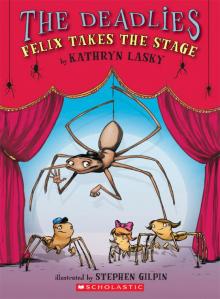 Felix Takes the Stage
Felix Takes the Stage Lucy
Lucy Lone Wolf
Lone Wolf Broken Song
Broken Song The Shattering
The Shattering The Crossing
The Crossing May
May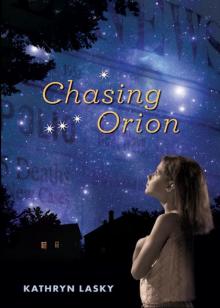 Chasing Orion
Chasing Orion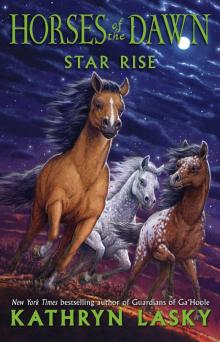 Star Rise
Star Rise The River of Wind
The River of Wind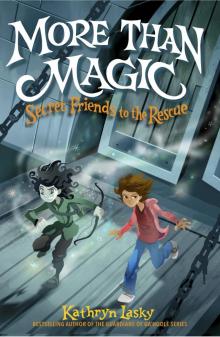 More Than Magic
More Than Magic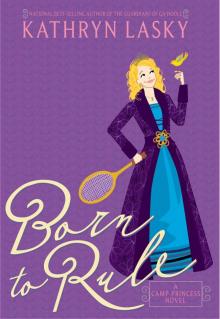 Born to Rule
Born to Rule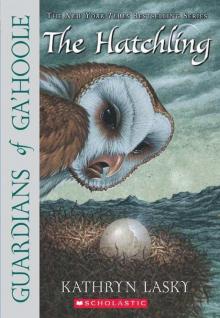 The Hatchling
The Hatchling The Rescue
The Rescue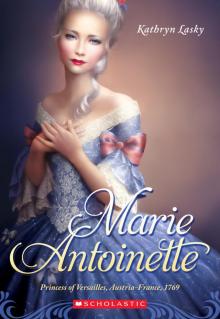 Marie Antoinette: Princess of Versailles, Austria - France, 1769
Marie Antoinette: Princess of Versailles, Austria - France, 1769 The War of the Ember
The War of the Ember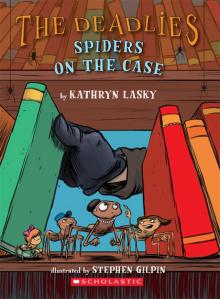 Spiders on the Case
Spiders on the Case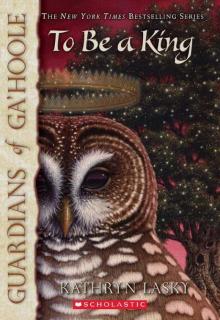 To Be a King
To Be a King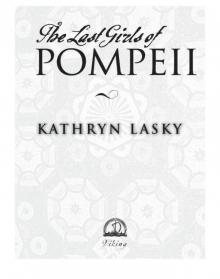 The Last Girls of Pompeii
The Last Girls of Pompeii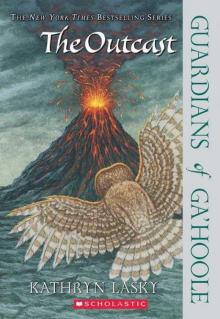 The Outcast
The Outcast Exile
Exile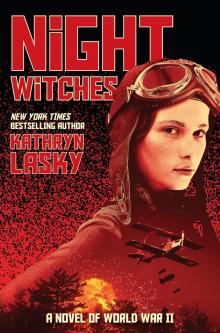 Night Witches
Night Witches Spirit Wolf
Spirit Wolf The Quest of the Cubs
The Quest of the Cubs Frost Wolf
Frost Wolf The Keepers of the Keys
The Keepers of the Keys The Extra
The Extra Blood Secret
Blood Secret Watch Wolf
Watch Wolf Blazing West, the Journal of Augustus Pelletier, the Lewis and Clark Expedition
Blazing West, the Journal of Augustus Pelletier, the Lewis and Clark Expedition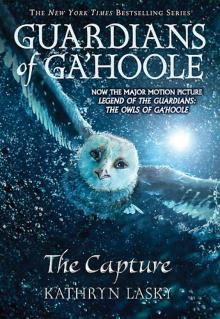 The Capture
The Capture The Burning
The Burning The Journey
The Journey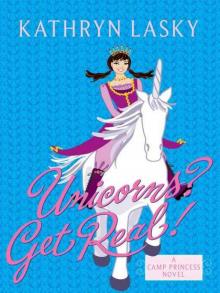 Unicorns? Get Real!
Unicorns? Get Real! The Escape
The Escape Star Wolf
Star Wolf Ashes
Ashes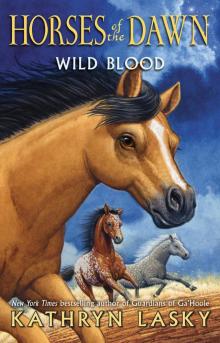 Wild Blood
Wild Blood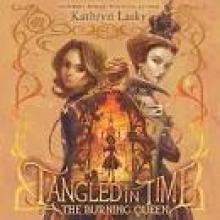 Tangled in Time 2
Tangled in Time 2 The Siege
The Siege Hannah
Hannah Elizabeth
Elizabeth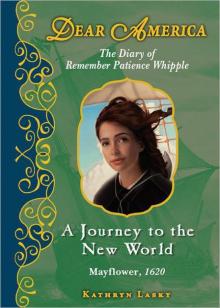 A Journey to the New World
A Journey to the New World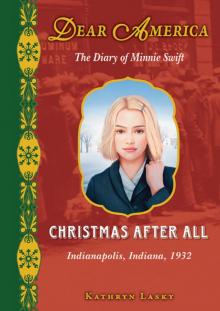 Christmas After All
Christmas After All Mary Queen of Scots
Mary Queen of Scots